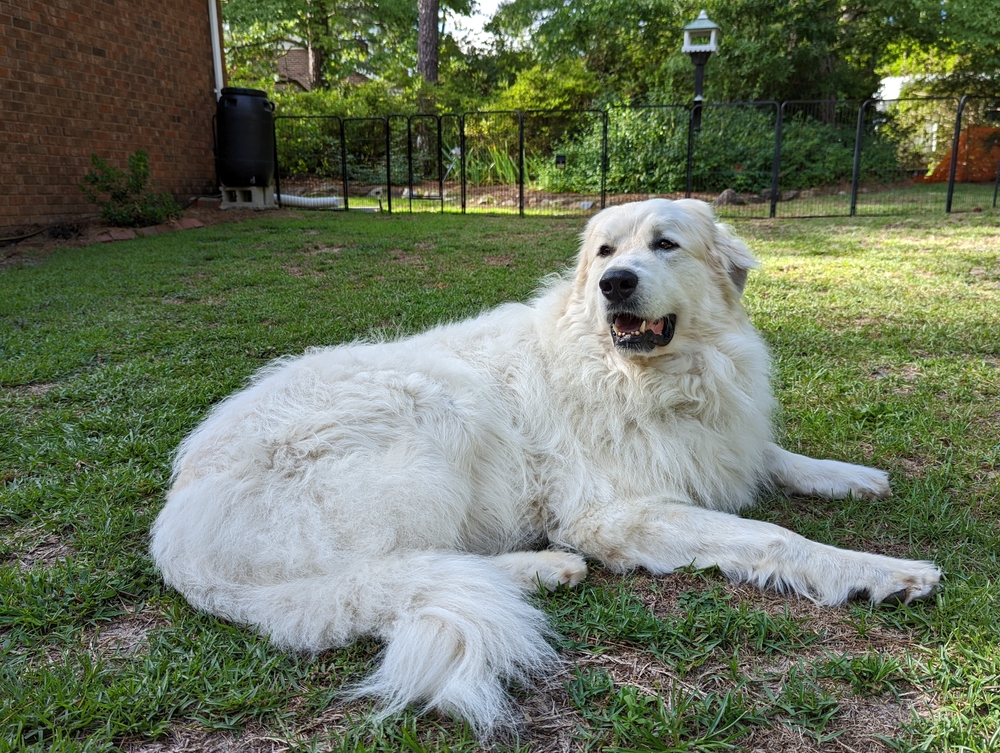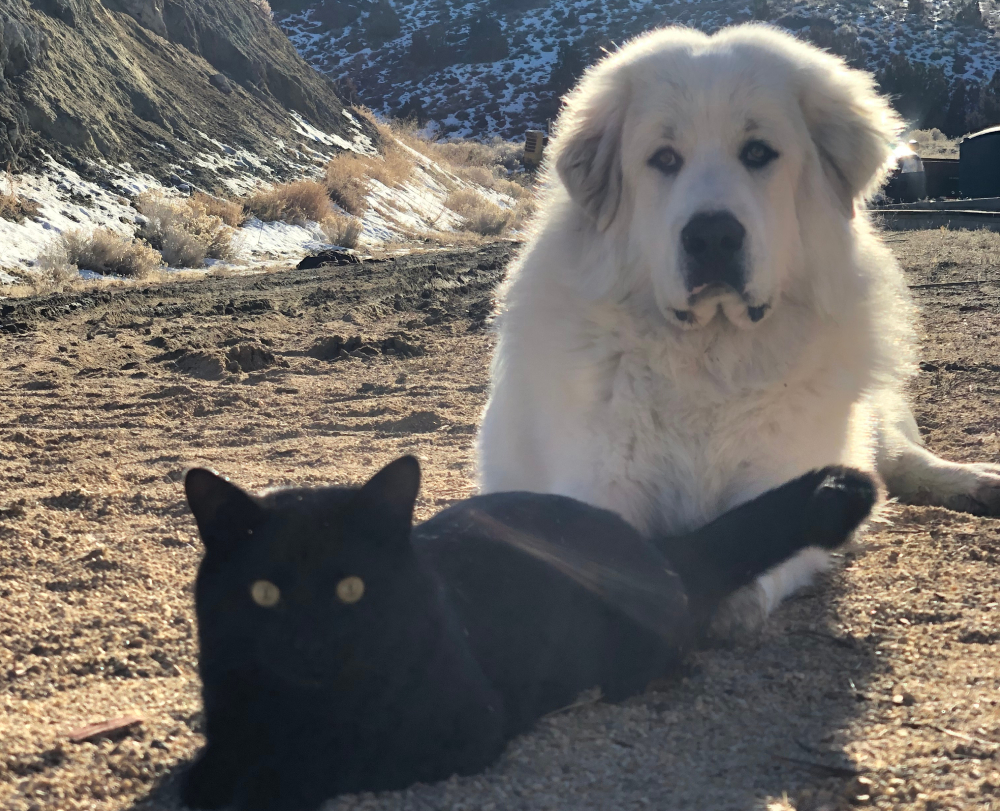- September 5, 2024
Are Great Pyrenees Good With Cats? Behavior & Temperament – Dogster

The Great Pyrenees is a lovable dog, making the breed an excellent family pet. It is an ancient breed, most likely originating from Siberia or Central Asia. They are large animals, with males getting well over 100 pounds. That fact alone is one red flag to keep in mind when considering bringing a Great Pyrenees home to your pet cats. However, that doesn’t necessarily mean that you can’t raise them alongside felines. How your Great Pyrenees interacts with your cat largely depends on proper socialization and training between the two from an early age.

Are Great Pyrenees Good With Cats? The Importance of Training and Socialization
The answer to this question is that it depends on the individual dog and how they were raised. It is entirely possible for this breed to get along with cats, and anecdotally, many Great Pyrenees owners describe them as gentle giants, especially around felines. However, there are some arguments for why it wouldn’t be a good idea.
We have already mentioned this breed’s size. Even a puppy of this breed has the potential to hurt a cat during play. Another factor to consider is the dog’s temperament, which is nurtured by the breed’s historic job as a livestock guardian. The Great Pyrenees may seem laid-back and easygoing. However, this pooch is alert to threats and can respond quickly if needed. They also have a keen prey drive, which could potentially make them a bad idea for households with pet cats.
It is often their instinct to guard their herd from potential threats, and that could include cats. However, it is possible that they also consider your pet cats as their herd, meaning they could look out for them, too.
All in all, this is a hard question to answer. However, due to their size and temperament, it is safe to say that the two should always be supervised around each other if you do decide to house them together, and early socialization and training are crucial for success.

What Factors Could Make a Great Pyrenees Bad With Cats?
Undoubtedly, some dog owners may disagree with our assessment. We prefer to err on the side of caution in these matters. Let’s consider the breed’s temperament and how it may affect your dog’s relationship with your cat. The Great Pyrenees has been a livestock guardian for centuries. This job involved fending off predators, including bears and wolves.
This work has a lot of downtime but still requires awareness. They are staunch protectors of livestock, and they are gentle and tolerant of these animals. However, it’s the opposite case with anything or anyone who threatens the herd. These dogs are independent in a role that doesn’t need close supervision. They are also highly intelligent. So, a fleeing cat may provide just the mental stimulation this dog needs.
Many breeders still raise the Pyrenees for this job. They are working animals with a specific job and the instincts to fulfill this role. Remember that some personality traits become fixed in purebreds with years of selective breeding that encourages them. Research has shown this dog is related to several other livestock guardians, including the Kuvasz and Komondor.
These breeds have similar traits, including affection for their families and a protective nature. They are on guard with strangers and not always accepting of other dogs, let alone a cat. It all comes with the territory and the job. These dogs won’t hesitate to defend their families or “herd.”

Final Thoughts
The Great Pyrenees excels as a family pet in households with older children. The dog will gladly share their affection with their humans and fend off threats and strangers. These instincts run deep in this breed. So, while many people say that these dogs are great with cats, there are factors that need to be considered in which they might not be the best fit. At the end of the day, though, much of how well your pets get along comes down to the individual pet, socialization, and training.
Featured Image Credit: Sierra Tango, Shutterstock
Tags
What do you think?
Related Articles

New Puppy Checklist: Gear You’ll Need for Your New Dog
Getting a new puppy is really exciting, but before you welcome them home, it’s important to prepare your space for them. Since puppies need a

How Big Do Mini Poodles Get? Vet Reviewed Average Weight & Growth Chart – Dogster
The information is current and up-to-date in accordance with the latest veterinarian research. Learn more » When you buy a Miniature Poodle, you might not

Can Police Dogs Smell Nicotine? Vet Verified Facts & Info – Dogster
The information is current and up-to-date in accordance with the latest veterinarian research. Learn more » While cigarette sales have been declining steadily for decades,

How Old Is 5 in Dog Years? Vet-Approved Guide to Each Size of Dog – Dogster
The information is current and up-to-date in accordance with the latest veterinarian research. Learn more » A common method for calculating a dog’s age is

